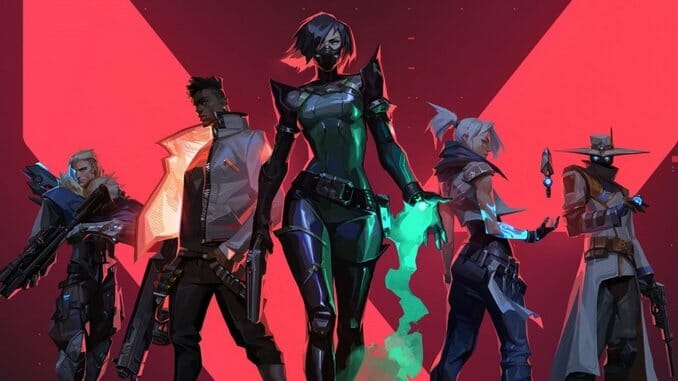
I almost want to dedicate this impression piece to my friend Kyle, who has had to endure me constantly screaming in his ear during the entirety of our Valorant sessions. I feel for him because I yell every time I see an enemy team member; every time they see me; every time I have a stand-off with someone; every time I get killed; and often enough when I kill someone. It’s a miracle Valorant hasn’t destroyed my voice.
It’s also a bit of a miracle I play Valorant as much as I do. I should be the kind of person who doesn’t enjoy Valorant. I don’t enjoy most first-person shooters, and the only ones I like have been significantly character driven; I could say little about Valorant’s agents. I’m terrible at shooters because my aim is as straight as I am (in other words: not at all); at the end of the day, you’ll live and die mostly by your shooting in this game. Since I don’t play many games in the genre, the ones that manage to catch my interest have to offer a good degree of accessibility and visual flair; accessible and pretty aren’t the first adjectives I’d use to describe Valorant.
And yet I can’t stop playing Valorant, needing to play a few rounds a day to scratch my constant itch for it. It is magnetic, tense to a degree I haven’t felt while playing many other games before. I am captivated by it and, even in its closed beta stage, already know I’ll be playing this for hundreds of hours with my friends.
Valorant creates dynamic gameplay out of a fairly simple foundation. In a match, you’re either an attacker or a defender. If you’re an attacker, your goal is to carry a spike bomb to a designated area in the map and protect it long enough to let it blow up. If you’re a defender, you try to defend the map by eliminating the attackers or defusing the bomb. The first team to reach 13 wins claims victory. That’s it.
However, there’s enough variety among the current roster of agents in Valorant to make matches much more complex. Agents have unique abilities, including an ultimate one, that are powerful enough to turn the tables. But you’re not guaranteed to use the ultimate ability all that often—rather than being a cooldown, it has to be charged up with points you accumulate from kills or absorbing special energy orbs on the map. You can’t switch heroes, but you do get to buy weapons and abilities at the start of every match, so just because you’ve been doing well up until a certain point doesn’t mean you can let your guard down—or that you’re destined to lose from the beginning.
What drives the magical tension in Valorant is that one bullet is all it can take to result in your death. While there is currently one agent, Sage, whose ultimate ability is to resurrect one player, once you die, that’s it. There’s no chance of being brought back like in Apex Legends or dealing with the pressure of returning in a few seconds to make a coordinated push with unwilling teammates like in Overwatch. The pacing of Valorant injects suspense into every moment, and makes sure not a single second feels wasted. It’s also refreshing. While matches can take a good while since you need to wait until a team reaches 13 points, they usually don’t last long enough to feel like a drag.
That’s not to say it’s easy to get into Valorant, though. Comparisons to Overwatch are impossible to avoid, as are comparisons to Counter-Strike: Global Offensive; after all, Valorant doesn’t try to hide how it takes inspiration from them. I haven’t played the latter, but I have played the former—for over 1,500 hours, in fact. Valorant has a steep learning curve that I didn’t experience with Overwatch. It made me realize just how accessible Overwatch is, especially for someone who isn’t a fan of the genre. It isn’t gentle about easing you into it; its UI is immediately overwhelming; its guns have a realistic but nonetheless annoying amount of recoil that can make aiming pretty challenging.
But once you overcome that learning curve, it’s thrilling in a way I’ve desperately needed these days. Thanks to this pandemic and being stuck under quarantine, I don’t have the motivation to do much of anything. I wake up, stare at my screen and browse the internet without aim, try to do some exercises, and feel sleepy by 9 p.m. When I play Valorant, I feel something more. It’s exciting and nerve-wracking and just plain fun. If it stops being that thanks to a toxic player, it’s easy to mute them on team chat, mute their chat, and even report them (which hopefully Riot Games will actually follow up on well). I’m eager to see how Valorant develops—and as to whether I’ll still be in love with it by the time its full release is out.
Valorant is currently slated for a full release this upcoming summer on PC.
Natalie Flores is a freelance writer who loves to talk about games, K-pop and too many other things.